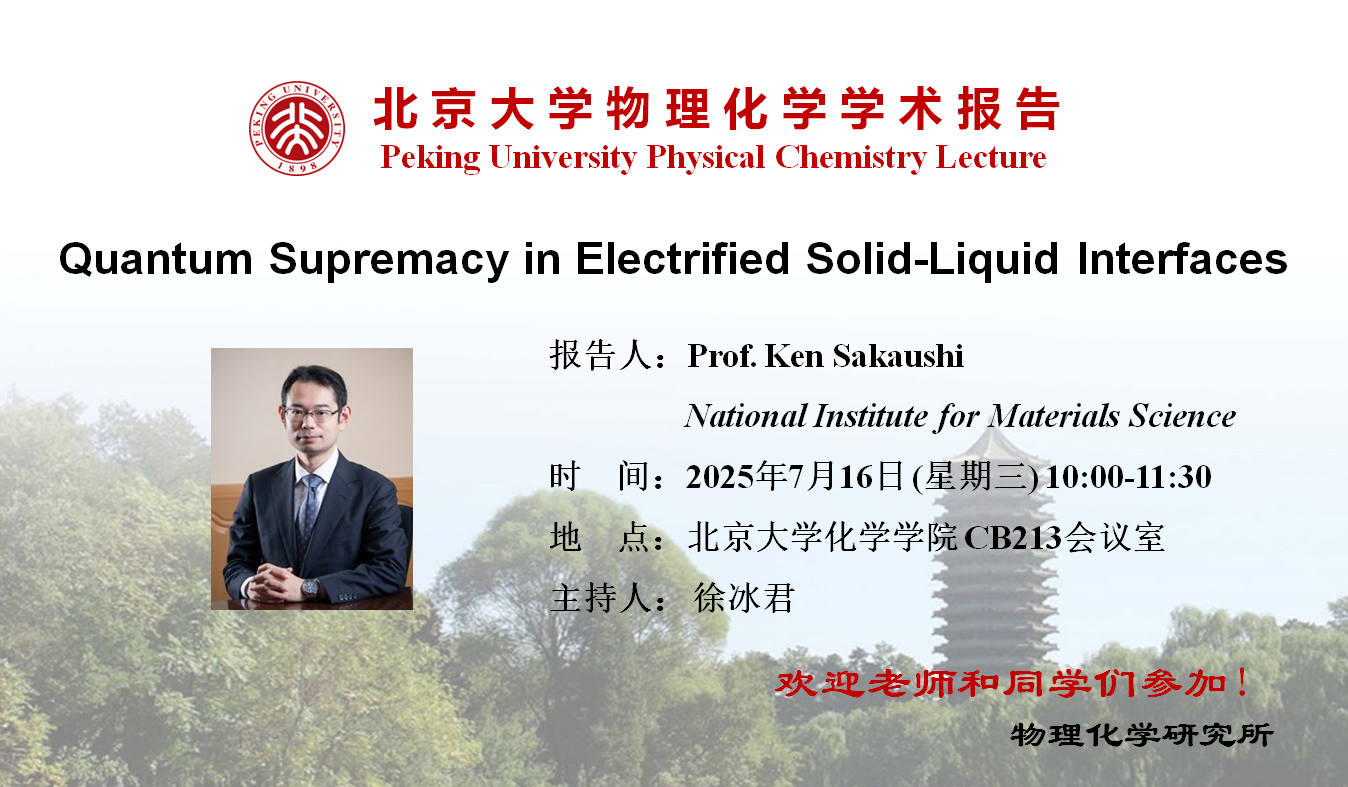
Abstract
Heterostructure is a classical yet still modern concept to trigger intriguing physical, chemical, or biological phenomena at surfaces/interfaces. To date, a wide spectrum of advanced idea is emerged using various solid-solid heterosystems, for example superconducting heterostructures, or Moiré heterostructures. Here, as an example of another interesting type of heterostructures, I will talk on solid-liquid heterostructures with applied potential. In particular, I will talk on a possibility on observation of quantum supremacy (QS) at electrified solid-liquid interfaces. QS is originally a term in quantum computing, and this concept was expanded to define electrocatalyst that leverages specific properties described by quantum mechanics to facilitate electrode processes. Of course every classical (i.e. nonquantum) electrocatalyst can be described by quantum mechanics since it is the universal principle. However, a classical electrocatalyst does not take advantage of specific properties and states, which are afforded by quantum mechanics, to facilitate its reactions. Interpreting observations is the main challenge when discussing QS at electrified solid-liquid heterosystems. This is because theories and computational methodologies for modern quantum electrode processes are still being developed and debated. Nevertheless, I will demonstrate that observations of QS at electrified solid-liquid interfaces can be investigated using a combination of advanced electrochemical experiments and modern theories and computations. Specifically, I will discuss the quantum-to-classical transition in electrode processes, which could be a key phase transition to investigate QS in electrode processes.
Biography
Ken Sakaushi is currently the Team Leader of Electrochemical Energy Conversion Team at the Research Center for Energy and Environmental Materials, National Institute for Materials Science (NIMS). His team conducts research aiming to solve modern energy issues through unveiling basic principles of electrode processes and synthesis of modern electrochemical materials towards development of advanced electrochemical technologies. Our team puts special emphasis on research in collaboration with experiments, theoretical calculation, and data science, focusing on the following two points: (1) uncovering reaction mechanisms by using model electrodes, and (2) design of novel high-performance electrocatalysts.
He studied theoretical physics (B.Sc. in 2008) and materials chemistry (M.Sc. in 2010) at Keio University, and electrochemistry at the National Institute of Advanced Industrial Science and Technology. In 2013, he has obtained his Ph.D. from the Leibniz Institute for Solid-State and Materials Research / TU Dresden with a Deutsche Akademische Austauschdienst Grant under supervision of Prof. Dr. Jürgen Eckert and Prof. Dr. Stefan Kaskel. His doctoral research focused on the synthesis of metal-organic and purely organic frameworks as well-organized model electrode systems to investigate their electronic structures, aiming to understand the correlations between structure and electrochemical energy conversion properties.